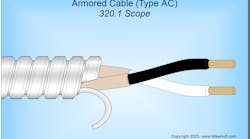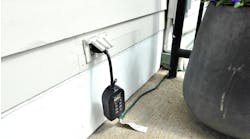The National Fire Protection Association (NFPA) is reminding people about the potential electrical hazards in swimming pools, hot tubs and spas, on board boats and in the waters surrounding boats, marinas and launch ramps as the nation turns to summer recreation.
Electric shock drowning (ESD) happens when faulty wiring sends an electrical current into the water. The current then passes through the body and causes paralysis. When this happens, a person can no longer swim and ultimately drowns.
Most people, said Lorraine Carli, NFPA’s vice president of Outreach and Advocacy, “including boat and pool owners and swimmers, are not aware of the risks of electric shock drowning. NFPA is raising awareness of this troubling trend and sharing our water safety resources so that everyone can safely enjoy summer water activities.”
For industry professionals, the 2017 NFPA 70, National Electrical Code (NEC) has been revised to improve pool safety and help reduce the risk of ESD. NFPA has additional codes and standards that apply to boats and marinas and their related electrical safety issues.
NFPA offered some tips for swimmers, pool and boat owners as well. Among the suggestions, the group said, “if you feel a tingling sensation while in a pool, immediately stop swimming in your current direction. Try and swim in a direction where you had not felt the tingling. Exit the water as quickly as possible; avoid using metal ladders or rails. Touching metal may increase the risk of shock.”
If a property owner is putting in a new pool, hot tub or spa, “be sure the wiring is performed by an electrician experienced in the special safety requirements for these types of installations.”
NFPA said boat owners should have the boat’s electrical system inspected and upgraded by a qualified marine electrician each year, and after a major storm, to be sure it meets the required codes, including the American Boat & Yacht Council (ABYC). Check with the marina owner who can also tell you if the marina’s electrical system has recently been inspected to meet the required codes of your area, including the NEC.
NFPA has more resources for swimmers, boat and pool owners, including tip sheets, checklists and more that can be downloaded and shared at its website.


